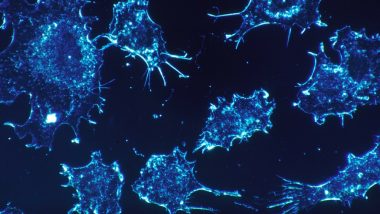For most people, ‘curable cancers’ are a contradiction. Thousands of men, women and children across the world who have conquered cancer, compel us to break free from this belief. Cancer is curable and newer therapies are chipping in to make a cure possible.
For many years the treatment of cancer was surgery and then came radiation. Chemotherapy was the by-product of the world wars; it was a shotgun remedy killing anything that grew rapidly. Cancer cells quickly grew and were killed; normal cells that grew fast were also killed along with it. The killing of healthy cells resulted in side effects. Chemotherapy cured, but the cure came at a cost.
The rationale for therapy
Cancer develops because cells acquire the ability to grow uncontrollably. Scientists have got an insight into the mechanism that causes cancer only in the last three decades. This insight gave a significant impetus to the rational development of drugs against the disease. Drugs, which unlike chemotherapy, would attack the mechanisms of cancer. Two types of drugs have been added to the armamentarium against cancer. The first is ‘Targeted Therapy’ and the second is ‘Immunotherapy’. Targeted Therapy targets the differences between cancer cells and normal cells. Immunotherapy restores the body’s immunity against cancer.
Targeted Therapy
The “targets” of targeted therapy are either changes in the cell that have turned cancerous or a protein that is mainly present in the cancer cell. One of the first successes of targeted therapy was a leukaemia called chronic myeloid leukaemia. Then same drugs against breast cancer, lymphoma, colon cancer, lung cancer and kidney cancer.
• Other cancers where targeted therapy is effective include lymphoma, colorectal cancer, lung cancer, kidney cancer, liver cancer and melanoma.
Immunotherapy
• Cancer cells can suppress immunity. Immunotherapy restores the ability of immune system to kill harmful cancer cells; it is a major shift in the principle of cancer treatment.
• Anti-cancer immunity may be stimulated by the used of checkpoint inhibitor monoclonal antibodies, T-cell therapy, oncolytic virus therapy, which are cancer vaccines and viruses capable of killing cancers. The development of these fighting agents is progressing at a very rapid pace. They are effective in lung cancer, kidney cancer and melanoma. They are also being evaluated for many other cancers.
• T-lymphocytes are a type of white blood cells (WBC) that kill foreign cells. A form of T-cell therapy is now available to modify patient’s T-lymphocytes then give them an ability to kill the cancer cells. The therapy is expensive and available in a very few centres, with time more cancer will be cured using this CAR-T, and the cost of therapy will reduce.
• Oncolytic Virus can kill cancer cells but spare healthy cells. One such virus Talimogene Laherparepvec is used in the treatment on melanoma a type of Skin cancer.
• Cancer vaccines stimulate the patient’s immunity to act against the cancer cell. A vaccine called Sipuleucel-T is available for the use in prostate cancer.
All drugs or therapies must be considered only after recommendations and guidance of an oncologist.
Changes over the years
The impact of drugs on the cancers is not fully appreciated. The last 40yrs have seen a tenfold increase in the survival of cancer patients, much of this because of drugs. Forty years ago 50 percent patients would succumb to cancer in one year, today 50 percent of cancer patients live for up to 10yrs. Drugs as a smart and new technology is being developed. The favourable impact of these developments will be seen in the coming years. Globally, women are more prone to cancer; cancers in women include 88 per 100,000 and 73 per 100,000 in men. In terms of ethnicities, generally speaking, Orientals have a lower risk of cancer than westerners. When orientals move to the west, their cancer risk increases.
(This article is contributed by Dr Avinash Deo, Medical Oncologist, SL. Raheja Hospital, Mahim - A Fortis Associate.)
(The above story first appeared on LatestLY on May 04, 2018 04:41 PM IST. For more news and updates on politics, world, sports, entertainment and lifestyle, log on to our website latestly.com).













 Quickly
Quickly


